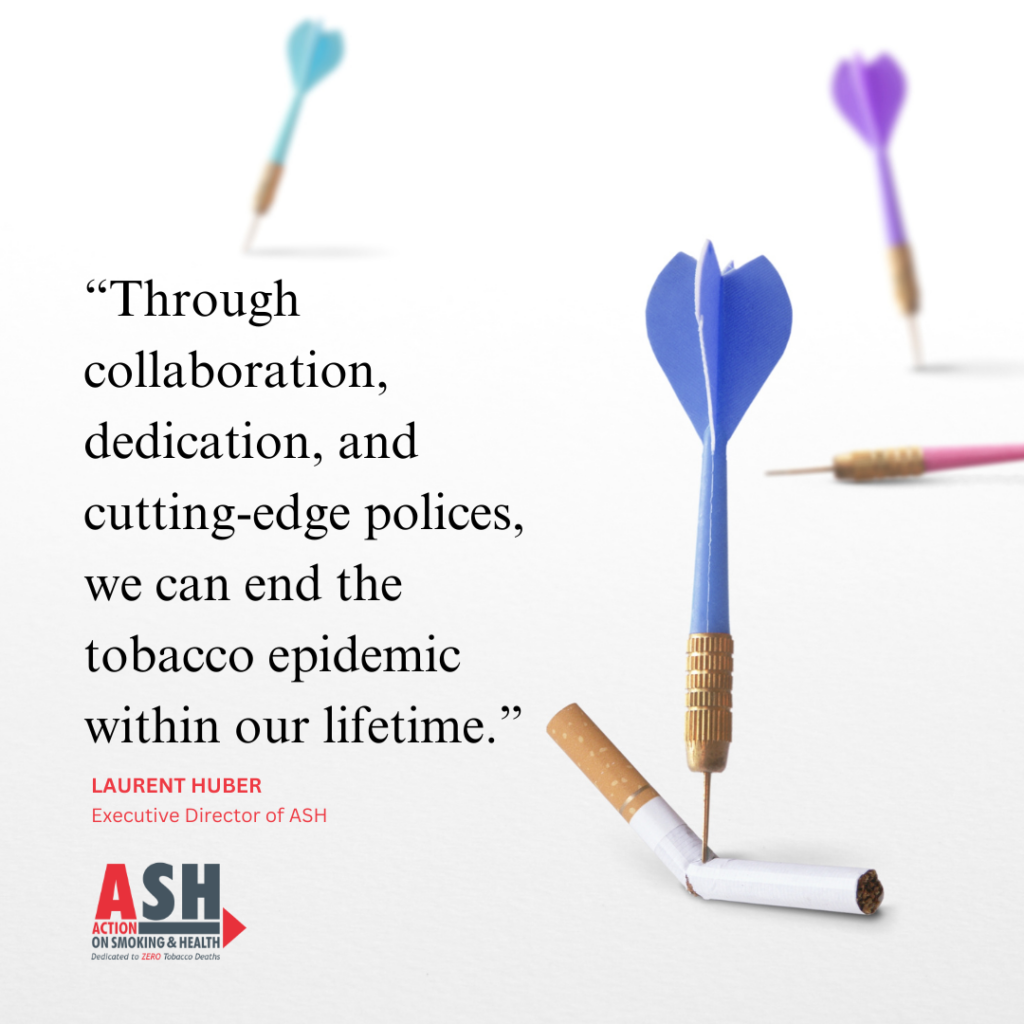Action on Smoking and Health (ASH) is very impactful by leading the way into new horizons of tobacco policy.
To give just a few examples, ASH blazed the trail to get radio and TV ads banned, helped start the smokefree indoor air movement and smokefree planes, led the global Framework Convention Alliance during and after the negotiations of the Framework Convention on Tobacco Control, pressed to ensure tobacco was included in the global noncommunicable disease agenda and Sustainable Development Goals, and was the first to take on the tobacco industry to protect tobacco policy in trade agreements.
ASH does not have the most researchers, attorneys, or lobbyists.
Our great strength is in identifying new solutions, kickstarting their implementation, and building consensus to seize these opportunities. In all of the above examples, the rest of the public health world eventually joined us.
Almost a decade ago, ASH set out on its most ambitious – some said audacious or even reckless – campaign yet: To end the tobacco epidemic permanently. Project Sunset is rooted in our human rights-based approach to tobacco. From that perspective, Sunset became obvious.
 It has not been easy or quick. To succeed in something that was considered impossible, we had to build the broadest coalition yet.
It has not been easy or quick. To succeed in something that was considered impossible, we had to build the broadest coalition yet.
ASH made the argument that tobacco is not merely a public health issue. The tobacco industry also exacerbates societal challenges like the environment, poverty, equity, economic and human development, social justice, and culture. And people listened.
Today, our coalition includes individuals and groups that are sick of cigarette butts littering beaches, people – even people who smoke – who don’t want their kids to start smoking, community leaders fighting poverty, inequities, and for access to health care.








